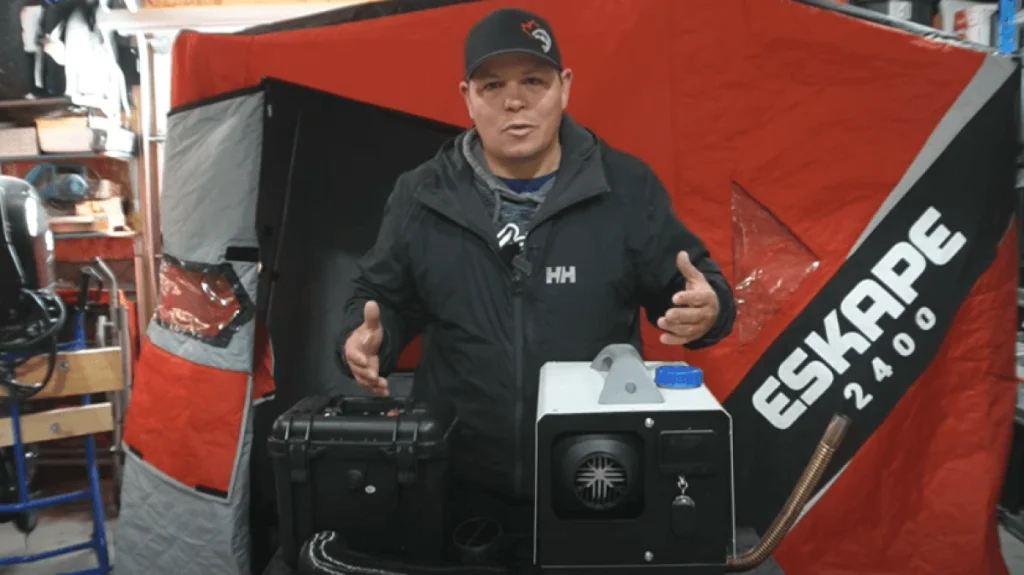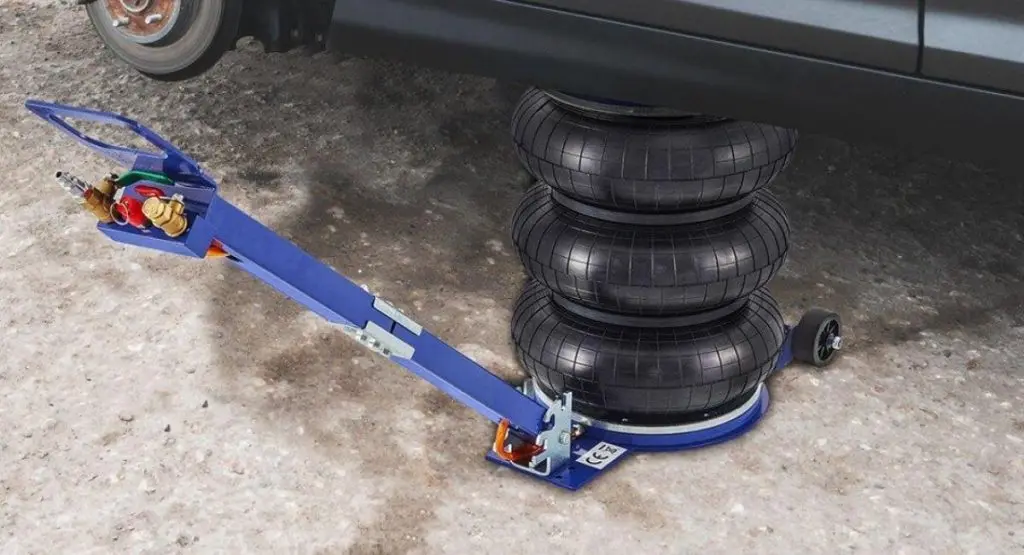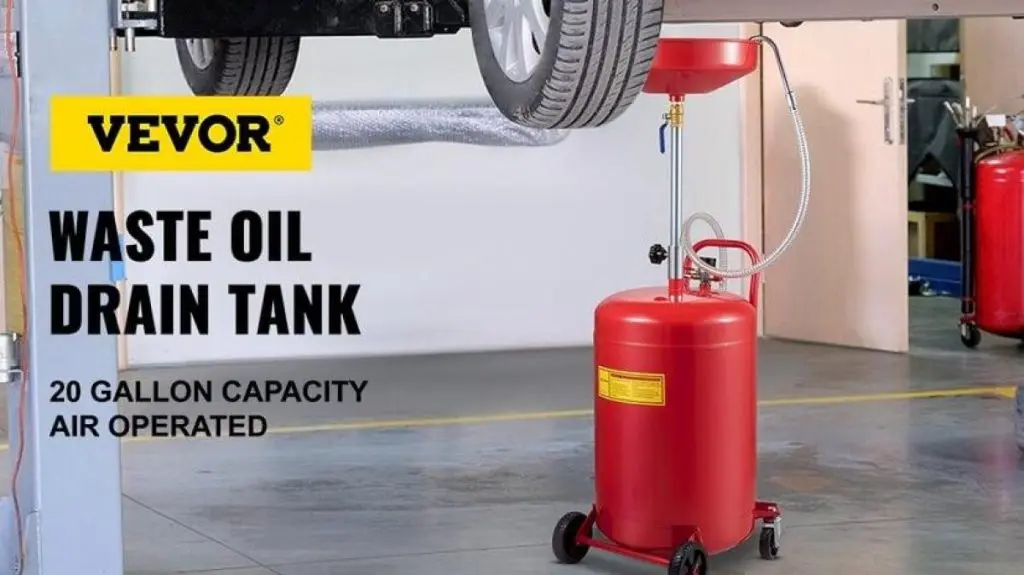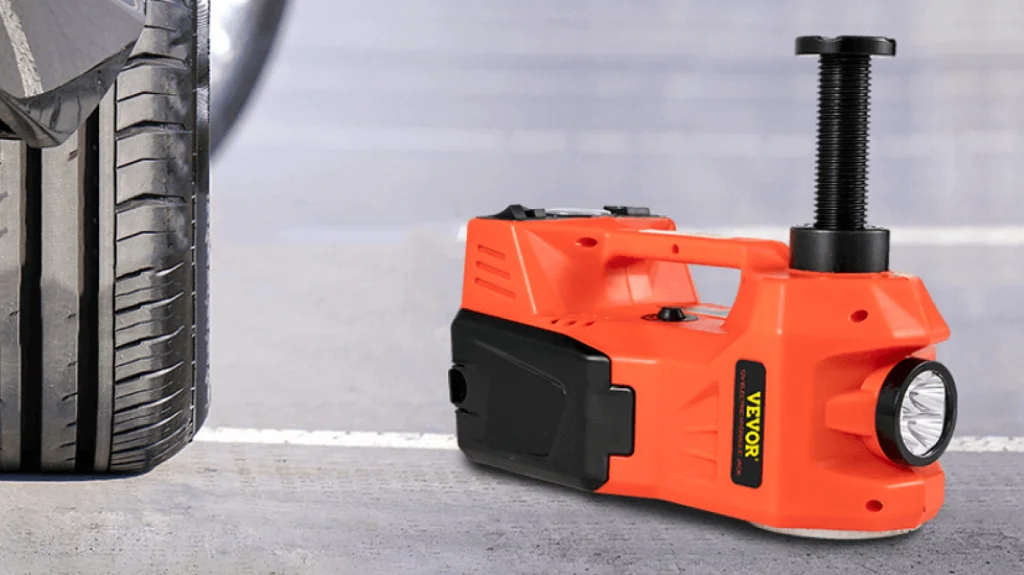A high-quality heating system for your RV, garage, or house is the best investment for winter.
Whether you purchase a diesel heater for a van or your house, the sellers will suggest another heating option, usually propane-fueled. It is one of the most difficult choices to make at that moment because, apparently, both have their pros and cons.
This article is a detailed account of a comparison of propane vs diesel heaters. Both types of heating elements are efficient and reliable, but it is better to make an informed decision after weighing all the features against your needs.
Understanding Propane Heaters
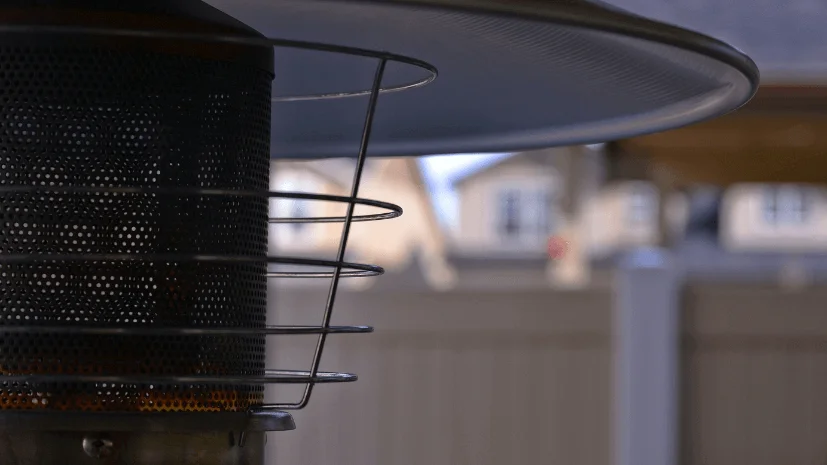
As a result of the adaptability and efficiency of propane heating, its utilization has been gaining in popularity as a means of meeting a wide variety of criteria relating to the provision of heat. Let’s have a look at the basic functioning of propane heating elements and their pros and cons:
Basics of Propane Heaters
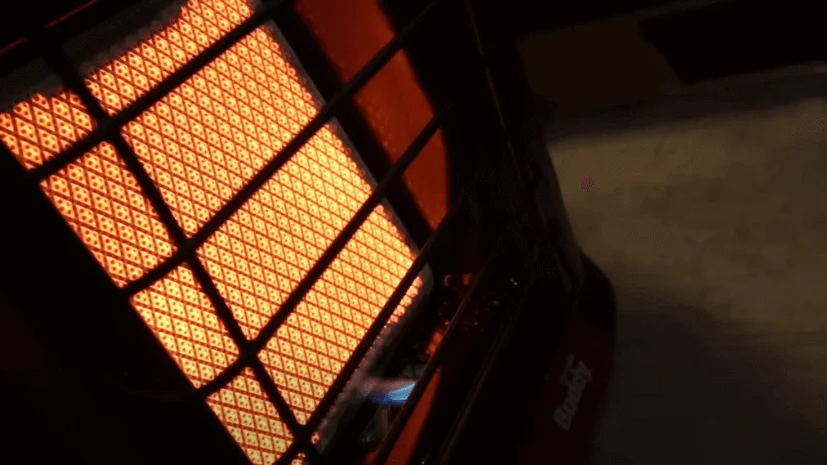
Propane heaters get their heat from the carefully managed combustion of propane gas inside a combustion chamber that has been purpose-built for the purpose. This is the basic process that supports the functionality of propane heaters.
How Propane Heaters Work
The energy released by propane heating is a product of hydrocarbon combustion. In residential applications, propane is in the form of colorless and odorless liquid stored under high pressure. As the pressure alleviates, the liquid propane vaporizes into a gas, and the combustion process begins.
All propane heaters feature some element, usually porcelain, that helps spread the flame out in a pattern for uniform distribution of fuel’s heat through the duct system. Most propane appliances feature a blue flame.
Common Applications of Propane Heating

Propane heaters are available in diverse forms, dimensions, and arrangements, allowing them to cater to a broad spectrum of requirements for heat provision. They can be found in bigger, fixed heaters that are specifically designed to heat larger spaces, as well as smaller, portable heaters that are suitable for use in smaller areas.
Pros of Using Propane Heaters
- Precise Heat Distribution: Propane heaters possess an inherent benefit due to their innate portability. The heaters’ adaptability enables users to easily move them to other locations, providing precise heat distribution to specific areas.
- Safe to Use: Propane is notable for having a clean burning fuel, which makes it safe for both inside and outside of a building. Nevertheless, you must always make sure to follow appropriate safety precautions to aid the heater’s continued operation.
- Eco-friendliness: Propane is widely acknowledged for its renowned status as a fuel that combusts with minimal emissions, rendering it an environmentally responsible option.
Cons of Using Propane Heaters
While there are many plus points to propane heating systems, there are a few downsides to it:
- High Upfront Installation Cost: You cannot install propane heaters on your own, as it requires expert assembly. If you already have a heating system, shifting to propane heaters will be even more expensive.
- Logistical Problems: To obtain fuel, you will have to schedule deliveries for yourself periodically. You can own a tank for storing propane and save yourself the hassle of scheduling deliveries, but you will pay for its maintenance and routine. Rental companies pay those charges if you rent, but again, the rental fee is high.
Exploring Diesel Heaters

These heaters are renowned for their exceptional efficiency and reliability, making them a preferred choice, especially for people who frequently experience cold weather conditions.
Basics of Diesel Heater
Diesel heaters function by harnessing the energy produced by the combustion of diesel fuel, much like propane heaters. They operate by drawing in cold air and efficiently heating it in a specific combustion chamber, before distributing the resulting warm air throughout the surrounding space.
Operational Principles of a Diesel Heater
The air inlet pipe draws the air inside the combustion chamber to kickstart the combustion process. The diesel in the pre-heated combustion chamber mixes up with the air and ignites to heat a large part of the heat exchanger. An internal blower will draw some external air past the exchanger, where it heats up and blows back to the environment. The exhaust system expels the combustion gas via the exhaust pipe.
Where are Diesel Heaters Used?
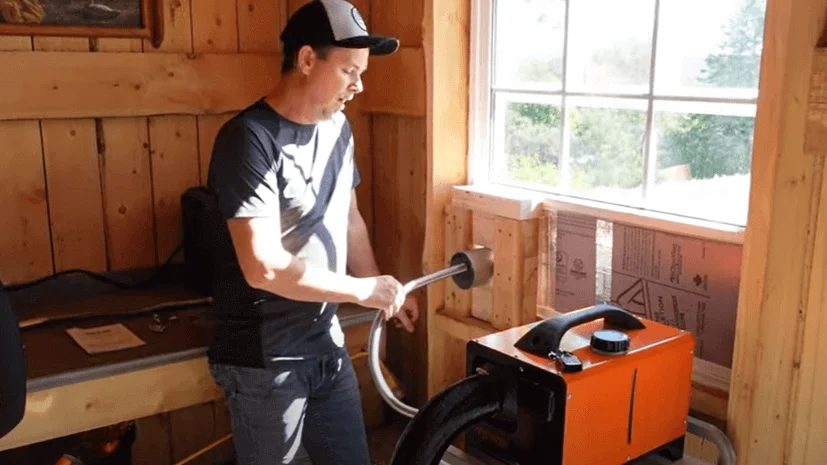
Thanks to their small dimensions and steady heat generation, they are an ideal choice for confined areas.
Diesel car heaters are highly efficient at providing heat in motorhomes, specifically in vans and RVs. Moreover, their low flammability makes them a great choice for camp heating. Their easy portability and lower power consumption make them preferable for heating boat cabins.
Advantages Offered by the Diesel Heaters
Diesel heaters have gained significant recognition and broad popularity, particularly in specialized uses, because of their distinct advantages.
- Durability and Longevity: Diesel heaters, with low maintenance needs and highly durable composition, can last up to several years. Hence, they outlive their propane counterparts.
- Operate in All Conditions: Diesel heaters provide advantages that extend beyond their portability and compactness. Their remarkable capacity to operate in exceedingly low temperatures renders them essential for cold-weather tourists seeking reliable heating alternatives.
- Fuel Efficiency: Moreover, diesel heaters are highly acknowledged for their remarkable fuel efficiency, allowing customers to maximize their heating capacity without the necessity of regular refueling.
Disadvantages of Using Diesel Heaters
In addition to the pros, it is essential to consider numerous trade-offs linked to diesel heaters.
- Can be Noisy: They demonstrate a proclivity to generate elevated amounts of noise when functioning, which can be a source of concern, especially in circumstances where it is imperative to reduce noise levels.
- Higher Emissions: Moreover, diesel heaters emit a higher quantity of emissions compared to propane heaters. Given the heightened emission output, it is imperative to thoroughly assess indoor usage and prioritize adequate ventilation to maintain indoor air quality and ensure safety.
Heating Efficiency Comparison
When evaluating heating efficiency, a significant distinction emerges between propane and diesel heaters.
Diesel vs Propane Heaters
Heating efficiency is an estimate of the amount of fuel a heater converts into heat energy for you. Comparing the heating efficiency of propane vs diesel heaters can help you decide better which one of the two options suits you.
Technically speaking, diesel molecules are more dense than propane molecules. Besides, they have a higher flash point than propane, making it less likely to ignite accidentally.
Which Fuel is More Energy Efficient?
The primary factors to assess are fuel economy and thermal or heat output, as these have a direct influence on the overall efficiency of these heating systems.
Diesel heating is more energy efficient compared to other heating options, including propane heating, due to the higher energy density per molecule. It leads to the ability to provide the same amount of heat with less fuel when using diesel, which is a notable advantage.
Impact on Heating Costs
In the evaluation of heating efficiency between propane and diesel heaters, it is evident that propane has a higher energy density per gallon, making it the more energy-efficient option. However, it is important to recognize that their inherent efficiency is not the sole determinant of their economic feasibility.
The current fuel prices in your vicinity will substantially impact the cost-effectiveness of the heating solutions. In specific regions, diesel fuel may be a more economically advantageous choice, offsetting its comparatively lower energy density. Conversely, propane can be an economically advantageous choice in areas where propane costs are favorable.
Safety Features to Consider
Regardless of whether you utilize diesel or propane as a fuel source for interior heating, prioritizing safety is of utmost importance.
Why is it Important to Consider Safety Features While Choosing a Heater?
Both types of heaters contain essential safety features, including automatic shut-off mechanisms and tip-over switches, to minimize any potential hazards associated with their use.
Using indoor heaters raises several important safety considerations, to sum up. While both propane and diesel heaters have safety features, it is important to compare them before making your decision. Both categories offer some features that might be more appropriate for specific settings.
Ensuring Safe Usage
- Adequate ventilation: It is crucial to highlight the importance of adequate ventilation while utilizing diesel or propane heating for warming enclosed spaces. Smooth air circulation is essential for the dispersion of any lingering gases and the maintenance of appropriate air quality.
- CO Detector: As a safety precaution, it is very advisable to install a carbon monoxide detector near the heating elements. This gadget possesses the capability to identify the existence of carbon monoxide (CO) rapidly and precisely, a gaseous discharge that lacks both color and odor. You should keep track because elevated concentrations of carbon monoxide can pose significant health risks.
- Routine Maintenance: Regardless of the type of heating system, periodic maintenance of heating systems is necessary to maintain propane and diesel heater efficiency. The components of a well-maintained system do not have to work hard, thus optimizing energy and cutting utility costs.
Moreover, keeping an eye out for wear and tear will save you from the strain of large repair costs in the future.
Cost Analysis: Which Meets Your Budget
Product comparisons for making an informed purchase decision are incomplete without comparing their costs.
Initial Costs
Propane heaters might be a popular recommendation, but these units cost you more than a diesel heater of the same heating capacity. VEVOR has some high-quality diesel heaters in every size and price for you to pick for your car, workshop, campervan, or house. These products will not disappoint and ensure you receive the maximum return on your investment.
Periodic Expenses
Propane heaters consume more power as they only have 66% of the energy content as diesel; you have to use 50 percent more Propane to achieve the same result.
The other most significant factor is to consider Maintenance. Repairs of propane heaters are costly and frequent as iron or steel parts often rust due to coils shutdown; repair-wise, diesel heaters are better.
Versatility and Adaptability
The portability of diesel and propane heaters has made them favorable for both indoor and outdoor usage.
Generally, both heating solutions work perfectly fine for industrial, residential, and even camp settings. However, for specific circumstances, one might be a better choice than the other due to the features it offers.
- Propane Heaters: Found in grills and furnaces, propane heating systems are a common sight at construction sites, backyards, and homes.
- Diesel Heaters: Diesel heaters are a better choice for workshops, RVs, cars, camping nights, vans, garages, and offices.
Conclusion
While propane heaters might be a popular choice among many, some people prefer a diesel heater for vans and houses. Both heating options offer their own unique advantages and disadvantages, but the final decision depends on your needs and budget.
If you are interested in exploring more about diesel heaters, the heating industry has a lot of options to suit your budget and needs. Check VEVOR’s website and scroll through small and massive diesel heaters at the best prices.

